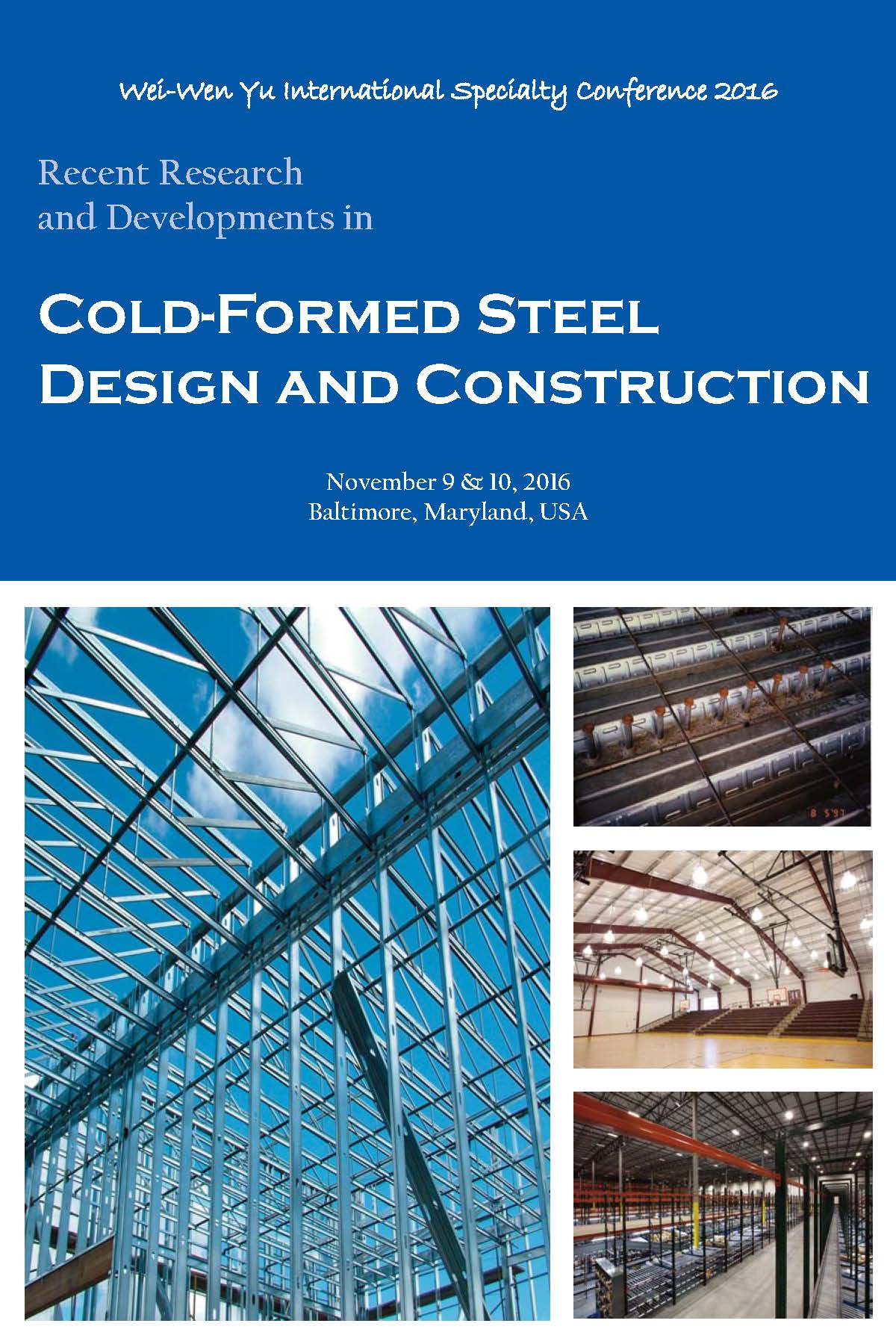Session Dates
09 Nov 2016
Abstract
Ferritic stainless steel is characterized by its low or even no nickel content, which provides a good alternative to a more commonly used austenitic stainless steel (with 8.0-10.0% nickel content) in structural application. The low nickel content attributes to low initial material cost and more stable price for ferritic stainless steel. A series of four-point bending tests was conducted on both square and rectangular hollow sections to investigate the flexural performance of cold-formed ferritic stainless steel hollow sections. The experimental results obtained from this test program and the available data in the literature on cold-formed ferritic stainless steel beams were used to assess the current design rules in the American Specification and direct strength method. It is shown that the current design specifications provide conservative predictions for the cold-formed ferritic stainless steel beams.
Department(s)
Civil, Architectural and Environmental Engineering
Research Center/Lab(s)
Wei-Wen Yu Center for Cold-Formed Steel Structures
Meeting Name
International Specialty Conference on Cold-Formed Steel Structures 2016
Publisher
Missouri University of Science and Technology
Document Version
Final Version
Rights
© 2016 Missouri University of Science and Technology, All rights reserved.
Document Type
Article - Conference proceedings
File Type
text
Language
English
Recommended Citation
Li, Lianghao and Young, Ben, "Tests of Cold-Formed Ferritic Stainless Steel Beams" (2016). CCFSS Proceedings of International Specialty Conference on Cold-Formed Steel Structures (1971 - 2018). 5.
https://scholarsmine.mst.edu/isccss/23iccfss/session3/5
Tests of Cold-Formed Ferritic Stainless Steel Beams
Ferritic stainless steel is characterized by its low or even no nickel content, which provides a good alternative to a more commonly used austenitic stainless steel (with 8.0-10.0% nickel content) in structural application. The low nickel content attributes to low initial material cost and more stable price for ferritic stainless steel. A series of four-point bending tests was conducted on both square and rectangular hollow sections to investigate the flexural performance of cold-formed ferritic stainless steel hollow sections. The experimental results obtained from this test program and the available data in the literature on cold-formed ferritic stainless steel beams were used to assess the current design rules in the American Specification and direct strength method. It is shown that the current design specifications provide conservative predictions for the cold-formed ferritic stainless steel beams.



